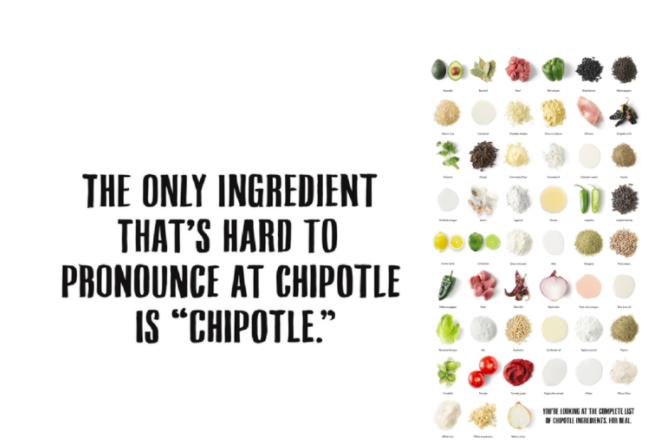Why Is Brand Familiarity Important for Small Businesses?
Businesses have “made it” when consumers have become familiar with their products by name.
According to Oberlo, 81% of consumers said that they need to trust a brand in order to buy from them. If customers become more and more familiar with positive aspects of a company’s brand, they’re more likely to convert to committed customers.
Brand familiarity refers to how consumers perceive brands. It is related to the time consumers spend processing information about that brand before it becomes common knowledge to the consumer.
The idea of brand familiarity plays a crucial role in a company's success, especially within competitive markets.
Need help selecting a company?
Based on your budget, timeline, and specifications we can help you build a shortlist of companies that perfectly matches your project needs. Get started by submitting your project details.
High Brand Familiarity Benefits All Parties
The benefits of brand familiarity go beyond name recognition.
Along with recognition and trustworthiness, customers are more likely to buy from brands that they already know and recommend these brands to their friends.
Just like engaged employees, loyal customers will become brand ambassadors, using word-of-mouth recommendations as one of their many advertising tactics.
Brand familiarity also increases the likelihood that consumers and other stakeholders will see your brand as a strong company. That perception can impact employee motivation, outside investor interest, and perceived business value.
Brand Familiarity Helps Form Businesses Strategy
In today’s digital age, branding companies can establish familiarity through a variety of channels:
- Create a strong brand image: companies can start small by focusing on a color palette, creative logo design, or other eye-catching elements to gain familiarity with their target audience. For example, Dunkin Donuts is known for its pink and orange letters and logo.
- Use social media: companies can invest in social media campaigns to market their services through quirky content that attracts a wider audience. For example, Wendy’s is known for their fast food and Wendy herself, but their unique tweets in recent years have gotten the attention of others online.
- Explore other avenues: companies can look outside of traditional marketing tactics to increase brand familiarity. For example, it seems that everyone has a podcast. Sephora, the cosmetics company, launched a podcast called #LIPSTORIES, which celebrated a line of lipsticks and the influential women that inspired them.
To establish brand familiarity, companies shouldn’t feel the need to stay confined to traditional approaches or marketing norms. To appeal to customers, businesses should look outside of the box and gather feedback and insights from their customers.
Brand Familiarity Can Minimize Impact of Negative Reviews
As brand familiarity grows, so does the potential for negative attention.
The more positive reviews and accolades your business receives can help your brand build trust and increase sales, but what happens when your company receives a negative review?
Customers leave negative feedback for many reasons including unsavory customer service, faulty products, or simply an overall bad experience.
Businesses shouldn’t worry if they receive negative feedback; it shows that your company is authentic. How your company handles the negative attention, however, is key to increasing your brand’s familiarity and visibility.
In 2015, an E.coli outbreak impacted several Chipotle restaurants in the United States. Restaurants temporarily closed in response, and the organization — known for its fresh flavors and ingredients — went into crisis mode.
With over 1,000 customers falling ill in the span of three years, the company made changes to its food safety policies and created several advertising campaigns to promote their efforts.

Their attempt at transparency was geared at rebuilding the trust that many consumers lost. The company even paid a significant federal fine for their role.
Chipotle recovered by broadening their horizons with their main staple: food. The company added new items to the menu and invested in mobile pickup and delivery services.
By focusing on the overall experience, customers began looking beyond the negative press surrounding food safety.
Negative recognition and publicity impacts brand familiarity in a different way, but depending on how the companies respond can have a positive impact in the end.
Brand Familiarity Offers Opportunities for Optimization
Once your company has brand familiarity, how do you sustain it?
To increase brand loyalty and recognition, businesses can consider these approaches:
- Focus on company values: 64% of consumers buy from or boycott brands because of its position on a social or political issue, or even launch their own awareness campaign. The message your company shows the world is a key way to increase brand familiarity and recognition. It is also a potential way to gain more customers and media attention.
- Keep it fresh: customers are drawn to brands that offer what they like while taking chances by exploring new avenues through free samples, demos, and interactive media content. Give your customers something new to talk about while still providing their go-to service or product.
- Deliver personalized content: companies that are leaders in their industry can strengthen that approach by including personalized offerings in their services. For example, Spotify and their yearly ‘wrapped” campaigns.
As a powerhouse in the music streaming industry, Spotify releases “Wrapped” each year as a specialized treat and experience that’s exclusive to their users.
The company’s popular campaign gives users a sharable review of their favorite artists, songs, genres, and podcasts.

The service allows users to take a look back through curated playlists, in-app quizzes, and other customized offerings.
Users were also able to share their findings easily through social media, giving their friends a chance to comment on how many times they listened to that one-hit wonder.
Spotify already has brand recognition in the music space, but their personalized offerings expands their reach through social sharing and more.
Sustainable Businesses Must Achieve Brand Familiarity
Think about your favorite, well-known brand. How did they achieve the success that they have? And how did they sustain it over the years?
To become a powerful brand, companies must build brand familiarity, regardless of the market. Tell your customers what you offer, who you are, and what you bring to the table.
Need help selecting a company?
Based on your budget, timeline, and specifications we can help you build a shortlist of companies that perfectly matches your project needs. Get started by submitting your project details.